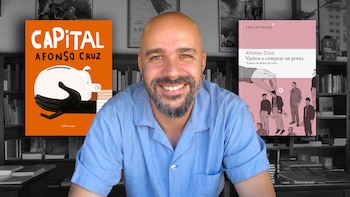
Jim Walden, legal counsel to former Moscow Anti-Doping Laboratory director Grigory Rodchenkov who blew the whistle on Russia's doping manipulation scheme during the Sochi 2014 Winter Olympics, opines on the latest decision by the Court of Arbitration for Sport. The CAS ruled that 28 Russian athletes identified in investigations by the World Anti-Doping Agency and International Olympic Committee would not have to serve lifetime bans from the Olympics. This Op Ed first appeared in 'The Washington Post'.
The world has seen incontrovertible evidence that Russia deployed a system of state-sponsored doping at the 2014 Winter Olympics in Sochi, Russia. Four separate commissions have concluded that Russia orchestrated the most complex doping scheme in history — two convened by the International Olympic Committee (IOC) and two by the World Anti-Doping Agency (WADA). The findings could not be any clearer. But now the highest court in sports has sent a chilling message to clean athletes and whistleblowers alike: Doping will be tolerated, even if you’re caught red-handed.
Last week, the Swiss-based Court of Arbitration for Sport (CAS) ruled in favor of 28 Russian athletes who had appealed their lifetime bans due to their use of doping. The reversal means these athletes have a chance to participate in the Winter Games in Pyeongchang, South Korea, which start on Feb. 9. There are already 169 Russian athletes set to compete at the Games as neutrals — even though they will compete with uniforms bearing Russia’s name. What’s more, the entire team may have the opportunity to march under Russia’s flag at the closing ceremony.
All of this is happening despite Russia’s proven use of a sophisticated doping system, which allowed athletes to use a special cocktail of performance-enhancing drugs and then have their dirty urine swapped.
Sanctions against individual athletes are a mockery. Forty-three individual Russian athletes were banned by a disciplinary commission in December 2017. But when the athletes appealed, the IOC capitulated to a process that was harried and disorganized, leaving key evidence out of the record. The result was a disaster. The CAS has now disregarded the evidence and reversed bans for 28 of the doped athletes. The millions of dollars spent by the WADA and the IOC to gather and assemble proof of the Russian doping system appear to have been for nothing: The CAS panel brushed it all aside with the stroke of a pen.
Clean athletes and sport fans around the world have lost confidence in the system,’ Linda Hofstad Helleland, vice president of the WADA, told the Associated Press. "It’s time to stand up and clearly say: This has to stop. This situation can’t be accepted any longer." She’s absolutely right. But hers is a lonely voice of sanity in the wilderness.
Although the soft punishment for Russia’s doping scheme has been decried, including by current and former IOC members, many important voices remain eerily silent. Of the dozens of International Sports Federations, only two — for track and field and the Para-Olympics — have taken strong stands against Russia’s crimes. Not a single corporate sponsor to the Olympics has issued any public statement about the affair, let alone decided to pull support. Only a small handful of Olympic athletes have made their voices heard. Fear of reprisal, doubts that meaningful reform is possible, the profit motive or complicity may all be factors. But the silence is deafening.
The system can be reformed, but it will never happen unless corporate sponsors and clean athletes take a strong stand against doping enablers and apologists, particularly IOC President Thomas Bach, who presided over this tragic affair with a cunning display of ineptitude. Sponsors and clean athletes who are not part of the solution are part of the problem. Both groups can and should engage in appropriate protest, even if they do not vote with their feet by boycotting the upcoming Games in Pyeongchang.
Sponsors can use their advertising dollars during the Olympics to call out the problems with weak anti-doping systems and demand greater protection of clean athletes. Athletes can peacefully protest during the Games, by publicly turning their backs on IOC officials when they address the athletes at the Games. If both these things happened, the IOC and other international sports organizations would be forced into a corner they have been side-stepping for too long.
Meaningful reform also requires greater protection of whistleblowers, such as Grigory Rodchenkov, my client, who fled Russia at great personal risk and disclosed evidence of the sweeping Russian conspiracy. (Two of his former colleagues in the doping program have already died under mysterious circumstances.) The WADA would not declare him a protected whistleblower because he first told his truth in the media, whereas the WADA requires that whistleblowers refrain from such public reporting. This ridiculous rule only perpetuates corruption, which can be eliminated only by the sanitizing effects of sunlight.
Whatever the WADA’s failings, whistleblowers everywhere should neither forget nor forgive the IOC, including President Thomas Bach, for their weak-kneed responses to Russia’s efforts to retaliate against Rodchenkov — including inexcusable calls to execute him, harassment of his family, seizure of his assets and attempts to silence him by bringing politically motivated criminal charges against him after his testimony was revealed. The IOC could have sent a powerful disciplinary signal by declaring that its current suspension of the Russian Olympic Committee will continue throughout the Pyeongchang Games. Yet it has flatly refused to do so. The IOC is not acting as a gatekeeper; it is an enabler.
Until reform comes, the Olympic ideal of clean sport will remain an illusion.
Forgeneral comments or questions, click here.
25 Years at #1: Your best source of news about theOlympics is AroundTheRings.com, for subscribersonly.
Últimas Noticias
Utah’s Olympic venues an integral part of the equation as Salt Lake City seeks a Winter Games encore
Utah Olympic Legacy Foundation chief of sport development Luke Bodensteiner says there is a “real urgency to make this happen in 2030”. He discusses the mission of the non-profit organization, the legacy from the 2002 Winter Games and future ambitions.

IOC president tells Olympic Movement “we will again have safe and secure Olympic Games” in Beijing
Thomas Bach, in an open letter on Friday, also thanked stakeholders for their “unprecedented” efforts to make Tokyo 2020 a success despite the pandemic.

Boxing’s place in the Olympics remains in peril as IOC still unhappy with the state of AIBA’s reform efforts
The IOC says issues concerning governance, finance, and refereeing and judging must be sorted out to its satisfaction. AIBA says it’s confident that will happen and the federation will be reinstated.

IOC president details Olympic community efforts to get Afghans out of danger after Taliban return to power
Thomas Bach says the Afghanistan NOC remains under IOC recognition, noting that the current leadership was democratically elected in 2019. But he says the IOC will be monitoring what happens in the future. The story had been revealed on August 31 in an article by Miguel Hernandez in Around the Rings

North Korea suspended by IOC for failing to participate in Tokyo though its athletes could still take part in Beijing 2022
Playbooks for Beijing 2022 will ”most likely” be released in October, according to IOC President Thomas Bach.




